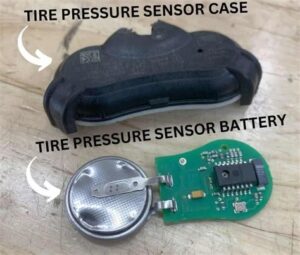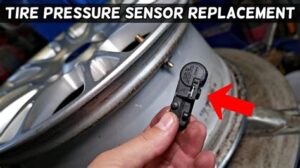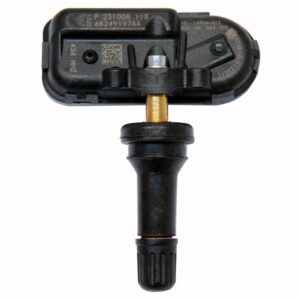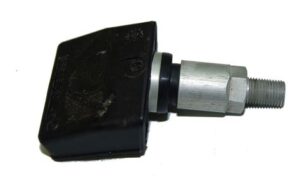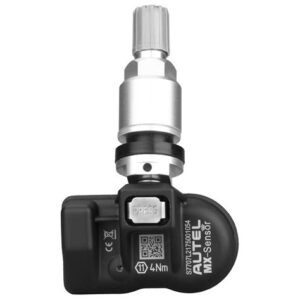Discover the significance of tire pressure sensor caps, how to choose the right ones, their benefits, and maintenance tips for optimal performance.When it comes to vehicle safety and performance, tire pressure sensor caps play a crucial role that often goes unnoticed. These small components are essential for monitoring tire pressure and ensuring that your tires maintain optimal inflation levels. Proper tire pressure not only enhances fuel efficiency but also extends tire life and improves overall driving experience. In this blog post, we will explore the importance of tire pressure sensor caps, how to choose the right ones for your vehicle, the negative effects of incorrect tire pressure, the numerous benefits of using sensor caps, and tips for their proper maintenance. By understanding the role of sensor caps, you can take proactive steps to ensure your vehicle remains safe and efficient on the road.
Importance of tire pressure sensor caps
Tire pressure sensor caps play a crucial role in maintaining the safety and efficiency of your vehicle. These small yet significant components ensure that your tires are properly monitored, leading to a range of benefits.
- Enhanced Safety: Proper tire pressure is essential for safe driving. By using sensor caps, you can actively monitor your tire pressure and avoid sudden blowouts or loss of control.
- Improved Fuel Efficiency: When tires are inflated to the correct pressure, your vehicle consumes less fuel. Sensor caps help maintain optimal tire pressure, leading to better mileage.
- Extended Tire Life: Maintaining the right tire pressure reduces uneven tire wear, prolonging the life of your tires and saving you money in the long run.
- Environmental Benefits: Properly inflated tires reduce the carbon footprint of your vehicle. Using sensor caps contributes to a more eco-friendly driving experience.
Moreover, tire pressure sensor caps are designed to alert drivers visually or audibly when tire pressure falls below the recommended level. This timely information can prevent potential accidents and costly repairs. In summary, investing in quality tire pressure sensor caps is a wise choice for ensuring your vehicle remains safe, efficient, and environmentally friendly.
Safety, efficiency, and sustainability, all begin with proper tire maintenance. – Anonymous
Choosing the right sensor cap
Choosing the right tire pressure sensor cap is crucial for ensuring optimal tire performance and vehicle safety. The right sensor cap will not only fit perfectly, but also provide accurate readings to ensure your tire pressure remains within the ideal range. Here are some important factors to consider when selecting the right sensor cap:
- Compatibility: Ensure the sensor cap is compatible with your vehicle’s make and model. Many sensor caps are designed specifically for certain brands, so check the specifications thoroughly.
- Material: Look for sensor caps made from durable materials such as polycarbonate or high-quality rubber that can withstand varying temperatures and environmental conditions.
- Pressure Range: Different tires may require different pressure ranges. Select a sensor cap that can accurately measure and display the pressure range of your specific tires.
- Ease of Installation: Look for sensor caps that are easy to install without the need for special tools or expertise.
- Brand Reputation: Opt for products from reputable manufacturers that offer quality guarantees. User reviews and ratings can also aid in deciding which brand to trust.
In addition to these factors, it’s also worthwhile to consider the cost. While it may be tempting to choose the cheapest option, investing in a quality tire pressure sensor cap can save you money in the long run by preventing issues related to incorrect tire pressure.
The right tire pressure sensor cap is integral for both performance and safety on the road. – Automotive Expert
By taking these considerations into account, you can make an informed decision when it comes to choosing the best sensor cap for your vehicle. Remember, a reliable sensor cap is key to maintaining proper tire inflation and ensuring your vehicle’s overall performance.
Effect of incorrect tire pressure
Maintaining the correct tire pressure is vital for the overall performance and safety of your vehicle. When tire pressure is incorrect, it can lead to a variety of negative effects that not only compromise the safety of the driver and passengers but also increase maintenance costs and reduce the lifespan of the tires. Here are some key effects of driving on incorrect tire pressure:
- Reduced Fuel Efficiency: Tires that are under-inflated create more rolling resistance, forcing the engine to work harder and consume more fuel. According to research, a drop in tire pressure by just 1 psi can reduce fuel efficiency by around 0.4%. This seemingly minor detail can accumulate significant costs over time.
- Poor Handling and Stability: Incorrect tire pressure can significantly affect a vehicle’s handling. Under-inflated tires may feel sluggish and unresponsive, while over-inflated tires can make the vehicle feel overly stiff and less stable, increasing the risk of losing control.
- Increased Tire Wear: Both under-inflation and over-inflation lead to uneven tire wear. Under-inflated tires will have excess wear on the edges, while over-inflated tires wear more in the middle. This uneven wear reduces the lifespan of the tires, leading to the need for premature replacements.
- Heat Buildup: Under-inflated tires can generate excessive heat due to increased friction with the road. This heat can lead to tire blowouts, putting the driver and passengers at risk. On the other hand, over-inflated tires are also prone to punctures and can burst under pressure.
- Longer Stopping Distances: Tires with incorrect pressure can drastically affect braking performance. Under-inflated tires take longer to stop due to their larger contact patch with the road, while over-inflated tires may not provide adequate grip and can lead to longer stopping distances.
To sum up, driving with incorrect tire pressure can pose significant risks to both the driver and the vehicle. Regularly checking and adjusting tire pressure is essential for optimal performance, safety, and longevity of tires.
Benefits of using sensor caps
Tire pressure sensor caps play a crucial role in maintaining your vehicle’s performance and safety. The benefits of using these sensor caps extend beyond mere convenience; they contribute to overall vehicle efficiency and road safety. Below are some key advantages of utilizing tire pressure sensor caps:
- Enhanced Safety: Regularly monitoring tire pressure reduces the risk of blowouts and accidents. Properly inflated tires ensure better traction and handling.
- Improved Fuel Efficiency: Keeping tires at the optimal pressure can significantly improve fuel economy. Under-inflated tires increase rolling resistance, leading to higher fuel consumption.
- Extended Tire Life: Proper tire pressure helps in even tire wear, which can prolong the lifespan of tires. This reduces the frequency of replacements, saving money in the long run.
- Easy Monitoring: Sensor caps provide real-time pressure readings, making it easier to identify issues before they escalate. Many modern vehicles come equipped with tire pressure monitoring systems (TPMS) that work seamlessly with these caps.
- Cost Savings: By improving fuel efficiency and extending tire life, using sensor caps can result in significant cost savings over time.
In conclusion, using tire pressure sensor caps offers multiple benefits that enhance safety, improve efficiency, and promote cost savings. It’s an essential investment for any vehicle owner who values performance and longevity.
Maintaining proper tire pressure is one of the simplest ways to enhance vehicle safety and efficiency. – Automotive Expert
Proper maintenance of sensor caps
Maintaining your tire pressure sensor caps is crucial to ensure their effectiveness and longevity. Proper maintenance not only enhances the functionality of your vehicle’s tire pressure monitoring system (TPMS) but also ensures your safety on the road. Here are some key aspects to consider for the proper upkeep of your sensor caps:
- Regular Inspection: Make it a habit to regularly inspect your tire pressure sensor caps. Look for any signs of damage, such as cracks or loose fittings that might compromise their performance.
- Keep Them Clean: Dirt and debris can interfere with the sensor’s ability to function properly. Use a damp cloth to wipe the sensor caps and remove any buildup around the fittings.
- Check for Corrosion: Sensor caps can be susceptible to corrosion, especially in environments exposed to salt or moisture. Regularly check for any signs of rust, and replace corroded caps promptly.
- Valve Stem Tightness: Ensure the valve stems are tight. Loose caps can lead to air leaks and ultimately affect tire pressure. A simple check can prevent more significant issues down the line.
- Temperature Adjustments: Be aware that temperature fluctuations can impact tire pressure. Regularly check the tire pressure, especially during season changes, and adjust accordingly.
By adhering to these maintenance tips, you can ensure that your tire pressure sensor caps are in optimal condition, helping to maintain proper tire pressure and improving overall vehicle performance. Remember, a little attention goes a long way in preserving both your vehicle and your safety.
Frequently Asked Questions
What are tire pressure sensor caps?
Tire pressure sensor caps are devices that monitor the air pressure inside tires and provide a warning if the pressure is too low.
How do tire pressure sensor caps work?
They work by using built-in sensors to detect pressure levels and transmit this information to the vehicle’s onboard computer or dashboard display.
What are the benefits of using tire pressure sensor caps?
They enhance safety by alerting drivers of any pressure issues, improve fuel efficiency by maintaining optimal tire inflation, and extend tire lifespan.
Can I install tire pressure sensor caps myself?
Yes, tire pressure sensor caps can often be installed easily by replacing the existing valve caps on the tires, but it’s advisable to consult a professional for proper calibration.
What should I do if my tire pressure sensor cap alerts me?
If you receive an alert, check the tire pressure using a gauge and inflate or deflate the tire as necessary to reach the recommended pressure.
Are tire pressure sensor caps compatible with all vehicles?
Most modern vehicles are compatible, but it’s important to check the specifications of your vehicle and the sensor caps before purchasing.
How often should I check my tire pressure sensors?
It’s advisable to check your tire pressure and sensors monthly, and especially before long trips or changes in weather conditions.
